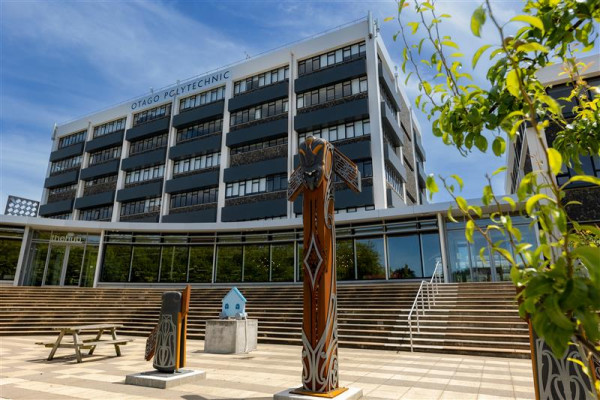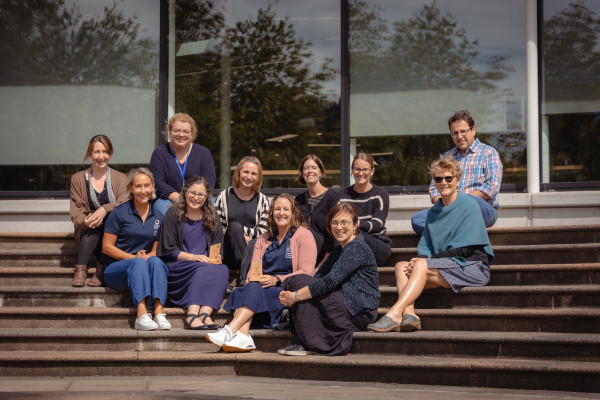- Tūhono home Hoki ki Tūhono
-
- Staff Directory
- Chief Executive Office Auckland International Office Corporate Services Finance Campus Services Functions and Catering Information Systems and Support Marketing, Communications and Engagement Learner Journey Academic Registry International Learner Services Te Punaka Ōwheo
- Learner Experience Academic Excellence Central Campus College of Community Development and Personal Wellbeing College of Engineering, Construction and Living Sciences College of Health College of Work Based Learning Open Education Resource/OERu Research and Postgraduate Studies Te Maru Pumanawa | College of Creative Practice and Enterprise
- Māori Development and Kaitohutohu Office People, Culture & Safety People and Culture Childcare Centre Te Ama Ako | Learning and Teaching Development Wellbeing and Safety Auckland Staff Directory Executive Office Academic Corporate Services Marketing and Business Development Human Resources Campus Quality and Programme Development
-
 Our people make a better world
Our people make a better world
We build the capabilities of individuals, organisations and communities and help them to realise their potential.
Staff Directory
-
- Tools
- Academic Integrity Declaration Form AIC Applications Dashboard Approved Programmes Approved Programme Fees Centralised Assessement Repository Chemwatch CMS - Tūhono & StudentHub updates Course Evaluation and Surveys CRM Applications CRM customer service hub Delegations policy/process Disability and Neurodiversity Dynamics 365 (CRM) EBS Ontrack EBS Report Email Security Personal Portal Employment Matters / Solarworkplace / Performance Reviews eTaxi eTV
- Financial Variance Reporting Hidden Disabilities Sunflower programme FCM travel intranet InPlace International entry requirements Knowledgebase articles Learner Support Dashboards Linkedin Learning Log a job with Marketing Login as an applicant Microsoft 365 Moderation App Moodle OP Docs OP Docs - Publishing OP Image Libraries Performance Excellence Portal Product Evaluation Panel
- Policy Library Privacy Programme and Course Design and Development Qualtrics XM RDS Remote Access Support Portal Research Database Robertson Library Staff FAQs about Graduation Status of Programmes Student Hub (Kāpehu demonstration view) Study Abroad info for learners Tūhauora I Wellbeing resources Uniprint Vault Webexpenses Auckland Tools
-
 Vault
Had an accident or near miss?
Log it here
Vault
Had an accident or near miss?
Log it here
-
- Communities
- Community AI Steering Committee Ally Network EBS Community of Interest EdTech Champions Health & Wellbeing Research Internal Evaluation Neurodiversity Professional Team Professoriate Proud@OP Student Support Website Advisory Group Web Champions Working under the Rainbow Project Learner Capability Trade Training Centre
- Committee Academic Committee Animals@OP Diversity and Equity Doctor of Professional Practice Committee Kaunihera Whakahaere - Leadership Council Internal Evaluation Learning & Teaching Leadership Team Library Committee Mental Health and Wellbeing Advisory Group Otago Polytechnic Board of Directors Pastoral Care Code Committee Programme Approvals Committee Research and Postgraduate Committee Research Ethics Committee Staff Subcommittee
- Think Tanks Mātauraka Our learners achieve educational success Pūtea Our financial success Tākata Our people, our team, our community Tiriti Our active commitment as a Treaty partner Tūroa Our commitment to be a sustainable and responsive organisation
-
 Create a community
Create a community
Do you have a community, committee or project that you'd like represented here?
Communities
-
- About OP
- Keep up to date All news All events All notices All blogs Share your info Create a news article Create an event Create a notice Create a blog
- Community and Partnerships Alumni and friends Education Foundation Operational information Academic calendar 2025 Academic calendar 2026 Current vacancies Dunedin campus map Our policies Topical FAQs
- Who we are About OP Commemorative sites Māori Strategic Framework Merchandise OP Our history Our strategic priorities Pasifika Strategic Framework (2025-2030) Vision and Values Working for us OP job opportunities Wellbeing Calendar Working at OP
-
New Zealand: 0800 762 786
contact us
International: +64 3 477 3014
What are individual perceptions of the role that physical activity plays during treatment of severe mental illness (SMI)?
Author: Adital Joshi
Supervisors: Codi Ramsey Phil Handcock Richard Humphrey
Adital Joshi
17 October 2022
Joshi, A. M. (2022). What are individual perceptions of the role that physical activity plays during treatment of severe mental illness (SMI)? (Unpublished document submitted in partial fulfilment of the requirements for the degree of Master of Applied Science). Otago Polytechnic, New Zealand. https://doi.org/10.34074/thes.5826
Abstract
There have been many studies published on treatments for severe mental illness (SMI) and the use of physical activity programs during treatment of SMI. However, many of the problems faced by community living individuals recovering from SMI are overlooked or not accounted for. Discrimination, side effects from antipsychotic medications, gaps in treatment referral systems, stigma and misdiagnosis continue to be issues that impede independent treatment of SMI in the community. Relatively little research has examined the reality of recovery and the role of physical activity during treatment of SMI. Through the lens of semi structured interviews with six individuals suffering from SMI, this research explores the part physical activity (PA) can play during treatment of SMI through the use of grounded theory. Findings from this study indicated that participants gained social relevance by performing PA in communal settings and that inspired them to discover their solo forms of physical activity during individual journeys through recovery. For the study participants, structured physical activity interventions were not the one and only solution for a successful treatment of SMI, quite the opposite. This study provides some insight into recovery experiences which participants experienced as a process rather than an outcome. Issues such as, generalised prescription of medications on the basis of assumptions from case histories; lack of support from psychiatrists during changing the dosage of medications; long waiting times and limited number of sessions to attend counselling, highlight the need for mental health professionals to ‘just listen’ to people with SMI for a person-oriented recovery. This study will help other researchers understand how solo forms of PA works during treatment of SMI and help them to carry out more research to establish different forms of solo exercises for a more person-centered recovery through social connection and independence.
Keywords: physical activity, SMI, misdiagnosis, stigma, solo exercise, recovery
Adital's research was supervised by Phil Handcock, Richard Humphrey and Codi Ramsey.
Licence
A copy of the thesis is publicly available under a Creative Commons Attribution Non-Commercial No Derivatives licence CC BY-NC-ND 4.0 International
